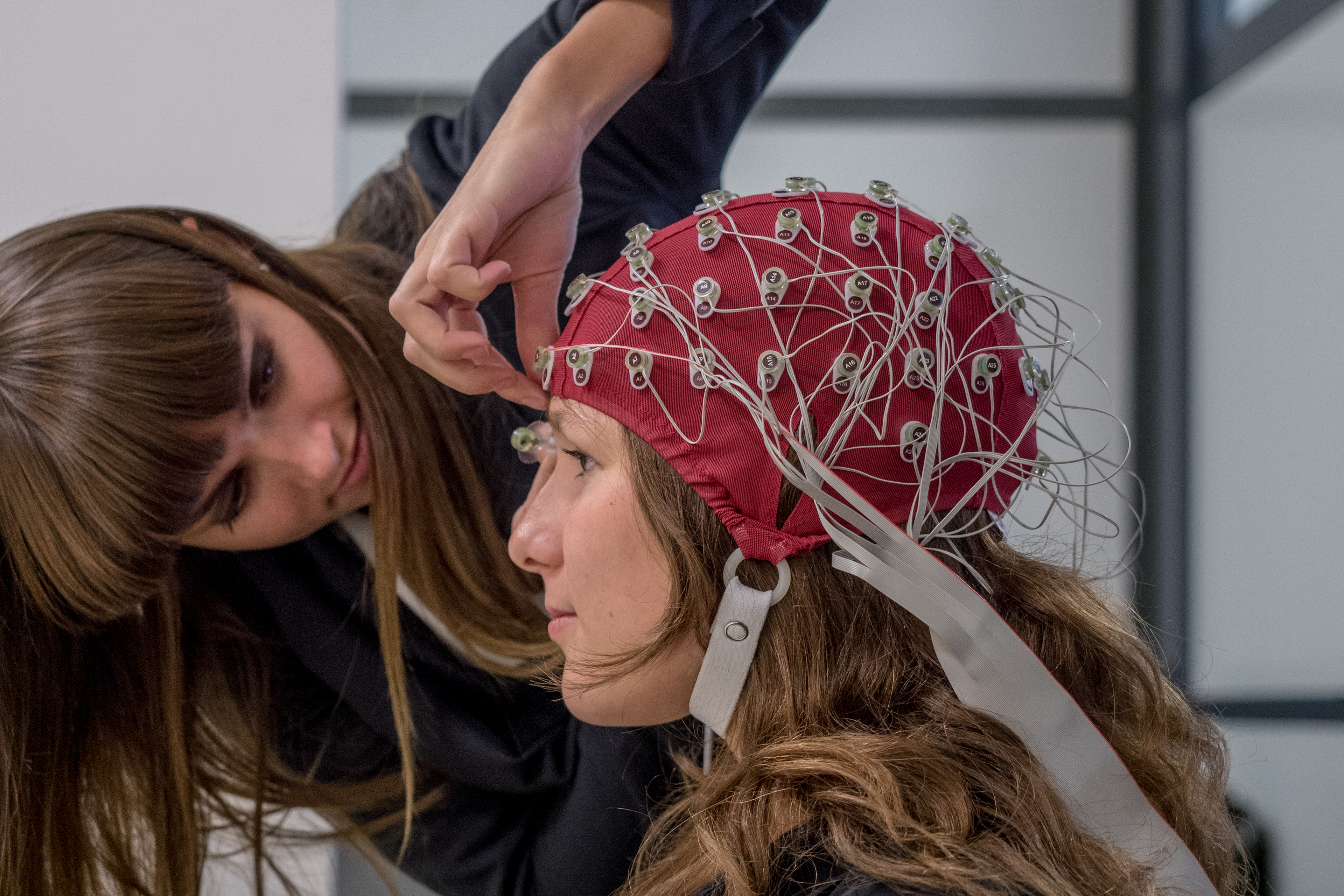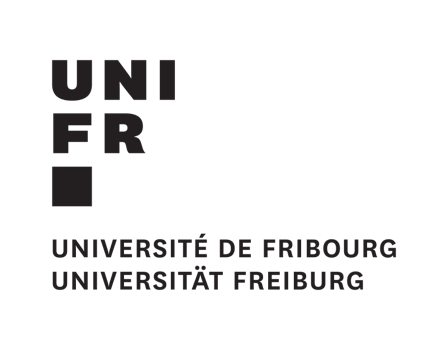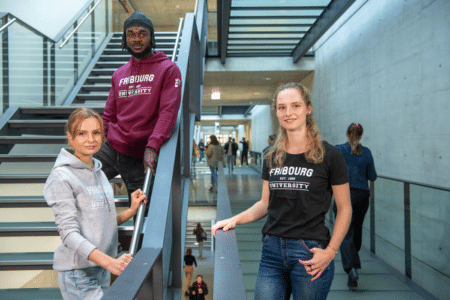The ultimate student experience is what you are getting at the University of Fribourg. You will be among approximately 10,000 students heading towards a common goal with support from over 800 professors, lecturers, and research assistants collectively. Here, you’re not just another number. With little to no hierarchy and much contact between the teaching staff and students, it’s easy to approach, ask questions, and clear doubts.
“Professors and lecturers are willing to take time out of their day to support students,” says Professor Ulrich Ultes-Nitsche, Dean of the Faculty of Science and Medicine. “Class sizes are often smaller than in most universities, allowing friendly interactions among students and faculty.”
Fribourg professors push you to pursue your curiosity and think critically. This, in turn, enables you to hone problem-solving skills, which is crucial for anyone seeking to become a sharp scientist who can identify errors of reasoning and biases in a heartbeat.
What further sets the Faculty of Science and Medicine is its focus on effective communication skills and teamwork. Here, you will work with your peers, professors, and faculty members in a multilingual and familial environment. In fact, there is collaboration and cooperation in not just one, but three different languages: English, French, and German.
However, the 16 master’s degrees available here are taught in English. These programmes are your pathways to thrive in today’s and tomorrow’s job market, where you will learn through fundamental classroom teachings and practical research.

Professors push you to pursue curiosity, think critically, and solve problems. Source: University of Fribourg
Master of Science in Bioinformatics and Computational Biology
Bioinformatics and computational biology have become increasingly important in life sciences, especially when the amount of data gathered is enormous and often difficult to process and analyse reliably. The Master of Science (MSc) in Bioinformatics covers basic and applied research ranging from conservation biology and modelling molecular networks to epidemiology, biomedical engineering and drug design, artistic data visualisation, and developing human-computer interaction.
“Graduates in Bioinformatics and Computational Biology have the statistical and programming knowledge to process research data and extract meaningful discoveries that could not be found without their specific skills,” says Prof. Ultes-Nitsche.
In your first semester, the programme will hone your expertise in biology, biochemistry, life science, mathematics, computer science, and physics. For students with a non-biology background, you will learn the foundations of all things biology through hands-on experiences, thus complementing your background with individually tailored courses in programming, statistics, or fundamental biology. In the second and third semesters, you will go through more practical training on topics such as data management, the analysis of sequence data, modelling of biological systems, image analysis, systems biology, and personalised health. Your final semester is dedicated solely to your own specialised research project, which will take place in the university’s state-of-the-art laboratories.
MSc in Environmental Sciences and Humanities
The MSc in Environmental Sciences and Humanities will prepare you to analyse conflicts and propose ethical solutions to challenges related to the environment, sustainability, and climate change. The programme is divided into six interdisciplinary modules: environmental humanities, geosciences, environmental biology, sustainable economy, environmental law, and humanities and theology.
“At the University of Fribourg, we have chosen to offer an interdisciplinary programme which trains graduates in environmental sciences on the one hand, but also in environmental law, economy, and philosophy and ethics,” says Prof. Ultes-Nitsche. “This breadth of knowledge allows graduates to have a tangible impact on climate policy by interacting with government, courts as well as the private industry. They are further able to critically appraise proposed climate policy with an eye on climate justice and equity.”
MSc in Digital Neuroscience

These five chosen programmes are your pathways to thrive in today’s and tomorrow’s job market. Source: University of Fribourg
The MSc in Digital Neuroscience is a new programme in which you will receive training in neuroscience complemented by theoretical understanding and practical expertise in machine learning and data analytics. You will be taught by researchers at the forefront of neuroscience, computer science, and artificial intelligence. During your first semester, you will learn about the fundamentals of both digitalisation and neuroscience, which includes learning Python programming and data analytics. Onwards, you will dive deep into specialised neuroscience applications and hands-on courses like machine learning and artificial intelligence.
“As part of their training, master’s students in digital neuroscience are expected to conduct a six-month research project as part of an active research group at the University of Fribourg or within the private sector,” says Prof. Ultes-Nitsche. “If they choose to do this work within the university, they are fully integrated into a research group in neuroscience, computer science or even psychology.”
MSc in Molecular Life and Health Sciences
The MSc in Molecular Life and Health Sciences has four research options. Developmental Biology and Regeneration, where you will investigate molecular aspects of regeneration, cell differentiation, epigenetics, gamete formation, and ageing. Neurobiology explores the nervous system. Biochemistry and Cell Biology emphasises molecular mechanisms regulating health and their dysregulation in diseases. And Marine Biology looks into the biodiversity of marine animals and particularly about the genomes, physiological and molecular adaptions in diverse environments.
What makes this programme stand out is how hands-on it gets in the second semester. After deciding which option to choose in the first semester, you will then be integrated into a research laboratory to conduct your own research project, for which you will write a thesis.
MSc in Computer Science
The University of Fribourg, along with the universities of Bern and Neuchâtel, came together to bring you the Swiss Joint MSc in Computer Science. With over 60 courses and seminars, you’ll be able to tailor your MSc to your chosen specialisations. This truly flexible and modular programme, with a choice of theoretical and practical orientations, is great for computer scientists seeking to expand their horizons and open doors to future career opportunities.
This master’s programme consists of two parts: coursework and a thesis related to one of the topics you have studied. All of this is normally done in three semesters but part-time students are free to take longer.
Follow the University of Fribourg on Facebook, Instagram, LinkedIn, X, and YouTube.













